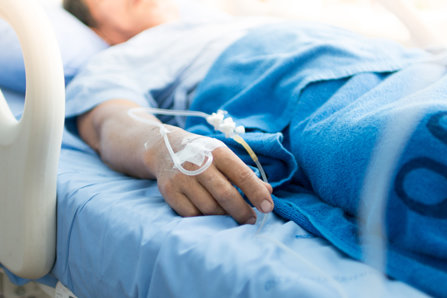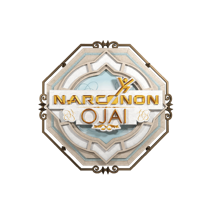Withdrawing On Your Own – Be Cautious

Usually learning to do something for yourself is an admirable goal. The more self-sufficient people are, the better they feel. And the more they can tackle their challenges and succeed, the more faith they build in themselves.
Drug addiction, however, is one of the few problems that people can rarely overcome on their own. Once a person starts using drugs, it almost impossible to break free. Recovery takes time, it does not occur overnight, and the assistance of a drug treatment center is needed to create a safe and effective recovery.
The first step to overcoming a drug addiction is withdrawing off of drugs. Finding the right approach is critical to ensure your health and safety. Many drugs pose medical risks upon rapid cessation and others can be debilitating for a period of time without support. In either case, seeking help is always the best approach.
A Study of IV Drug Users Indicates that Opiate Self-Withdrawal Rarely Works
About 85% of people who inject opioids will experience withdrawal symptoms at some point. Whether these withdrawal symptoms are caused by not having the drugs or because of the addict’s efforts at self-withdrawal, withdrawal symptoms will occur for the vast majority of opiate addicts.
Opiate withdrawal symptoms increase health risk for users, and they often lead to relapse (a return to drug use). Why? Because opiate withdrawal is painful and nerve-wracking unless it is done with professional help. When someone tries to come down off of opiates on their own, they will most likely experience immense discomfort and intense cravings for more of the drug.
Some of the symptoms that can occur during opiate withdrawal include:
- Considerable physical pain
- Body aches
- Fatigue
- Nausea and vomiting
- Stomach pain
- Aching muscles
- Anxiety, agitation, nervousness
- Fever
- Chills
- Increased heart rate
- Diarrhea
- Depression, grief
- Tremors
Symptoms vary based on the individual’s overall health, underlying medical conditions, the extent and duration of his or her drug use, the stressfulness of his or her environment, etc.
The Power of Drug Addiction

True recovery takes time. No matter the drug of choice, addiction is a progressive, debilitating crisis that gets worse the longer one uses drugs. Furthermore, the very nature of addiction, the compelling and controlling aspect that drugs exert over a person, combine to make it very difficult for them to break free from their drug of choice.
When someone tries coming down off of drugs, they will likely feel sick, often severely so. They will probably experience powerful cravings to take drugs again, cravings for the feelings that the drugs gave them, and a considerable craving for the withdrawal symptoms to cease.
It is not the case with all drugs, but some drugs pose medical complications when one tries to withdraw from them. Drug addiction should involve professional attention to ensure a safe withdraw. For example, while opiate withdrawal is not usually life-threatening, one should still not attempt it on their own.
Withdrawing off of drugs and alcohol creates varying degrees of risk, both physically and emotionally. Seeking professional help is not only the right thing to do to foster a safe withdrawal, but professional help also ensures an effective and a relapse-free withdrawal.
There are also the psychological components of drug addiction that will likely present themselves during a withdrawal. Addicts take drugs despite the negative consequences because those drugs are doing something for the addict. He or she uses drugs as a coping mechanism, as a way to supposedly solve a problem, to avoid some aspect of life that they do not want to face.
During a withdrawal, the individual will likely experience considerable physical discomfort (potentially even medically risky discomfort depending on their drug of choice). They will also experience a resurgence of the psychological, emotional, and behavioral struggles that they used drugs to avoid. These factors are what make it almost impossible for someone to withdraw off of drugs on their own.
Withdrawal Is Only the First Step – The Value of a Residential Drug Treatment Center
Even if a struggling drug user manages to withdraw off of drugs on their own, withdrawal is still just the first step in breaking free from the multifaceted crisis that is addiction. One cannot merely withdraw and stop there. There is still the complex psychological and behavioral side of addiction, the extensive mental pull that drugs have on the individual. That must be addressed to create a genuinely sober, substance-free life for the person.
Someone coming down off drugs still needs to find solutions to the things that led them to use drugs in the first place. They need to learn how to live life without turning to drugs as a coping mechanism. They have to work on the problems that their drug use caused with their family members, friends, job, etc. They have to find out what their triggers are, what the things are that might cause them to want to use drugs again. They have to learn how to avoid and even eliminate those triggers.
Narconon offers a path to freedom from drugs and alcohol, a treatment methodology that effectively tackles all of the aspects of addiction, the physical and the psychological. Narconon utilizes a time-tested, unique program that is found nowhere else in the world. Narconon centers provide stability, comfort, and a program that is proven to help people free themselves from addiction and rebuild their lives without drugs. Narconon will ensure that you withdraw safely in an appropriate setting by referring you to a medical detox prior to entering the Narconon program. If you know someone who is struggling with addiction and who is thinking about attempting a drug withdrawal on their own, please contact Narconon today. Get them the help they need and the help that will work.
Sources:

